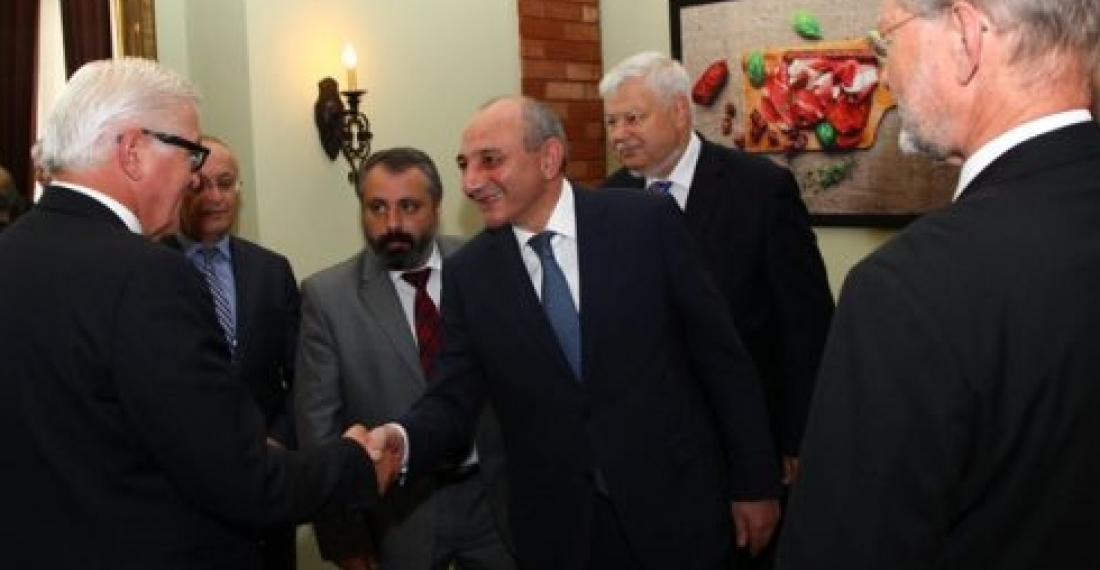There has been intensive diplomatic activity over the last few days as the international community tries to maintain the negotiations between Armenia and Azerbaijan on track. This follows a meeting in St Petersburg between the Presidents of the two countries hosted by the President of Russia.
On Thursday (30 June), US Secretary of State, John Kerry spoke on the phone with President Ilham Aliev of Azerbaijan and President Serzh Sargsyan of Armenia. A spokesman for the US State Department confirmed that the main focus of the two conversations was the Karabakh conflict and its resolution.
In the meantime it was also reported that Russian president Putin briefed his French counterpart, Francois Hollande about the results of the St Petersburg meeting. Russia and France, together with the United States co-chair the Minsk process which is mandated by the international community to mediate a solution of the conflict. The process, initiated in 1992, operates within the framework of the Organisation for Security and Co-operation in Europe (OSCE). There are unconfirmed reports that France has offered to host the next meeting between the Presidents of Armenia and Azerbaijan. Russian Foreign Minister Sergei Lavrov is also expected in the region next week.
The Chairman-in-Office of the OSCE, German Foreign Minister Frank-Walter Steinmeier, is concurrently in the region where he has already met the key stakeholders in Armenia and Azerbaijan, including the Presidents and the Foreign Ministers in the two countries. In Yerevan on Thursday, Steinmeier also met with the leadership of the self-declared Nagorno-Karabakh Republic, led by its President Bako Sahakyan. In Baku Steimeier met representatives of the Azerbaijani community displaced from Nagorno-Karabakh as a result of the conflict.
Commonspace.eu political editor said in a comment that "the international community is trying to maintain the initiative and push the sides to take the negotiations to the next phase. There is cautious optimism that the relative calm on the line of contact that has been observed over the last days can be sustained throughout the usually difficult summer months, and that this will help the negotiations. However there is also recognition that in case progress is not registered in the negotiations more violence is to be expected. Whilst trying to navigate the complicated waters of Caucasus politics, diplomats also have to manage the different agendas of the international powers, who whilst all claiming to support the common efforts to resolve the Karabakh conflict, each have a different nuance as to how this can be achieved."
source: commonspace.eu with agencies.
photo: German Foreign Minister Frank-Walter Steinmeier on Thursday (30 June) met in Yerevan with the President of the self-declared Nagorno-Karabakh Republic Bako Sahakyan (picture courtesy of Armenian Public Radio).






